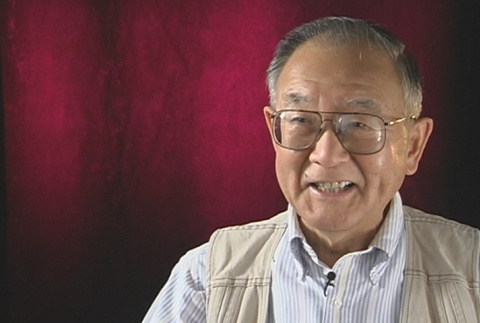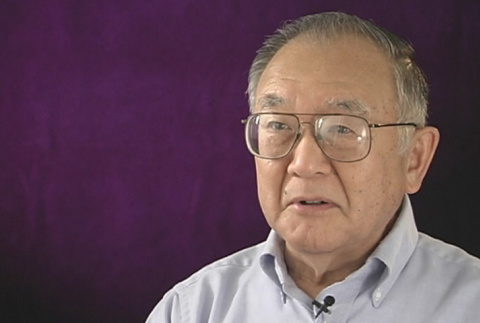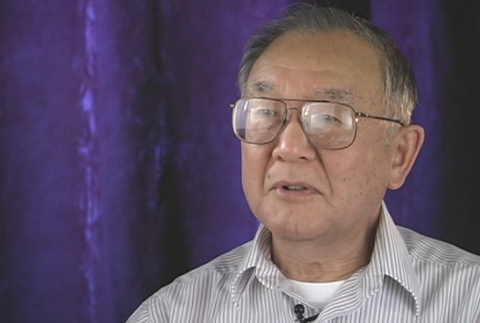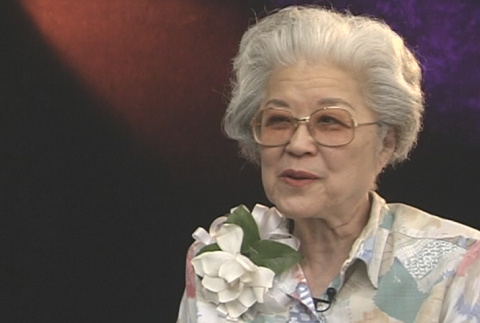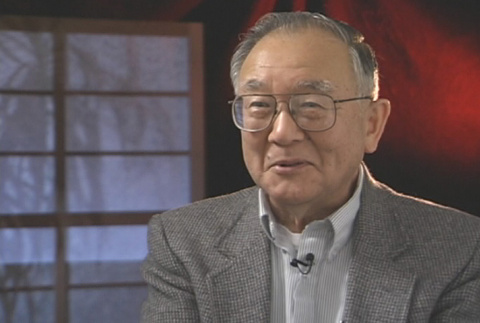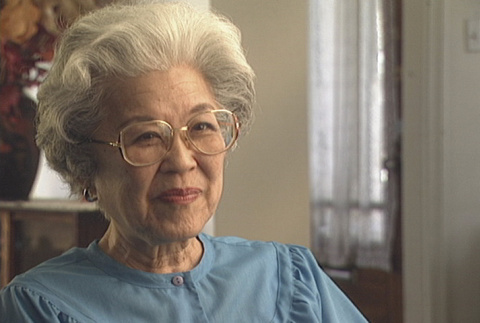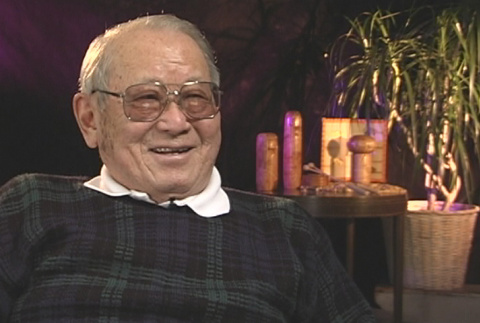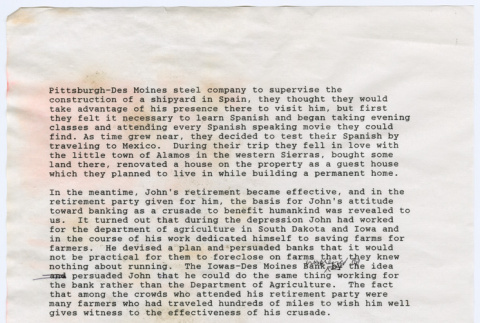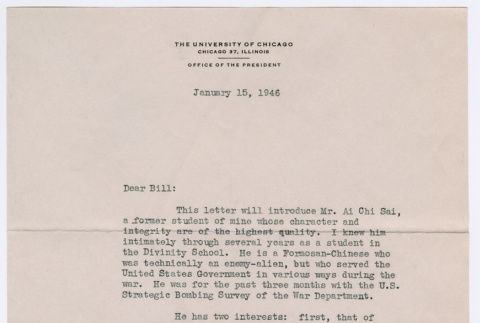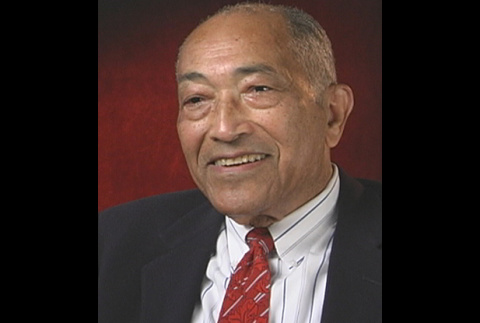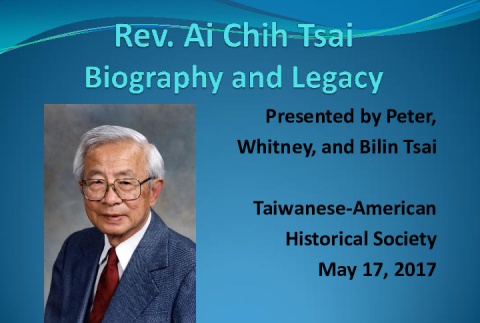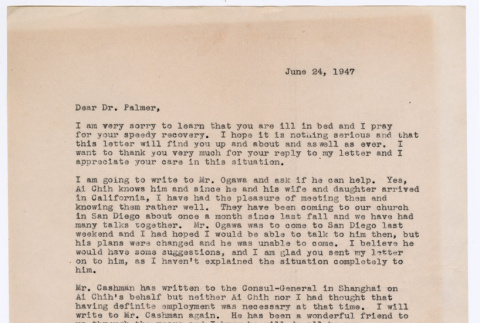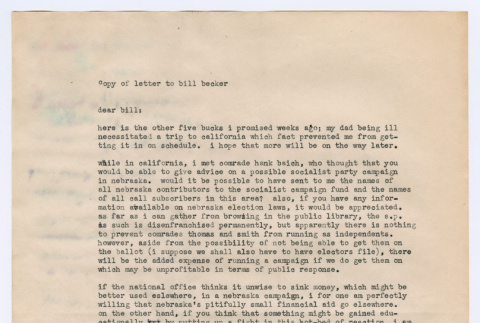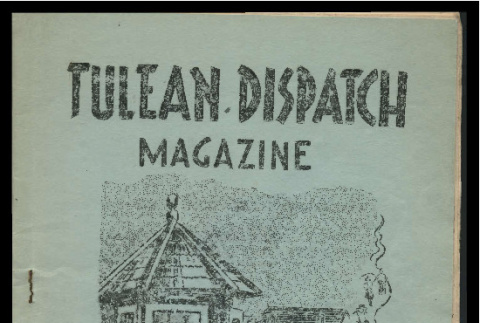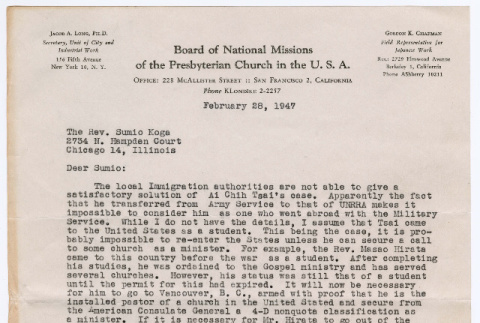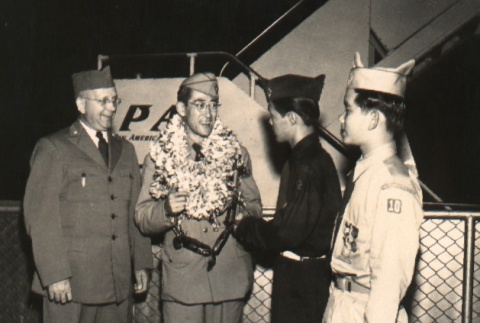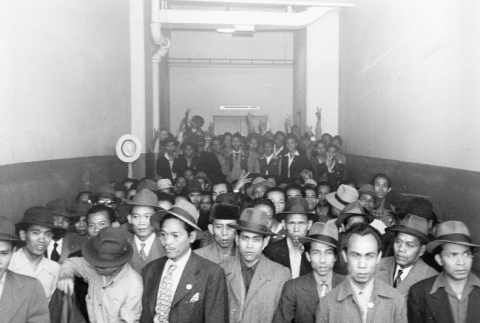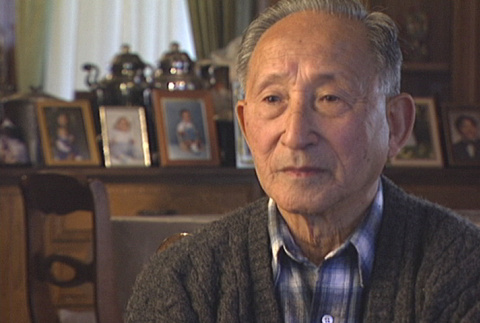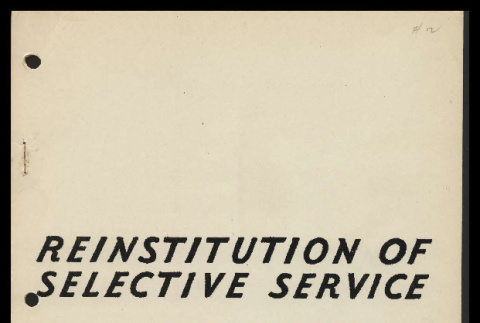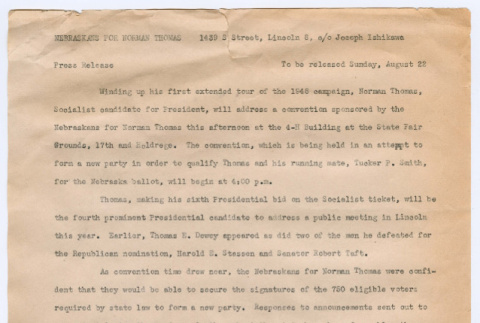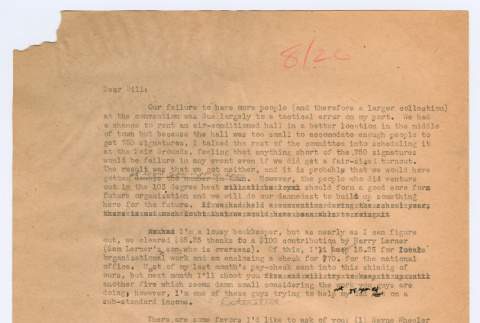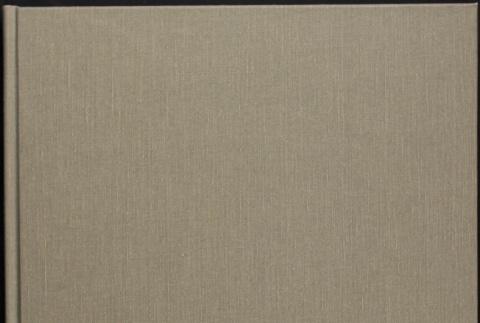2107 items
2107 items
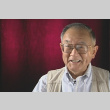
vh
Henry Miyatake Interview V (ddr-densho-1000-57)
Nisei male. Born April 28, 1929, in Seattle, Washington. Incarcerated at Puyallup Assembly Center and Minidoka concentration camp, Idaho. Had some key childhood experiences with discrimination that made him a self-described, "independent thinker," and later, an influential figure in the Japanese American community. While a teenager in camp, he wrote and defended an essay criticizing the …
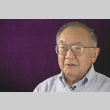
vh
Henry Miyatake Interview III (ddr-densho-1000-55)
Nisei male. Born April 28, 1929, in Seattle, Washington. Incarcerated at Puyallup Assembly Center and Minidoka concentration camp, Idaho. Had some key childhood experiences with discrimination that made him a self-described, "independent thinker," and later, an influential figure in the Japanese American community. While a teenager in camp, he wrote and defended an essay criticizing the …
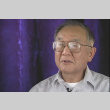
vh
Henry Miyatake Interview VI (ddr-densho-1000-58)
Nisei male. Born April 28, 1929, in Seattle, Washington. Incarcerated at Puyallup Assembly Center and Minidoka concentration camp, Idaho. Had some key childhood experiences with discrimination that made him a self-described, "independent thinker," and later, an influential figure in the Japanese American community. While a teenager in camp, he wrote and defended an essay criticizing the …
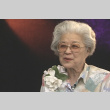
vh
Aiko Herzig-Yoshinaga Interview I (ddr-densho-1000-16)
Nisei female. Born August 5, 1924, in Sacramento, California. Grew up in Sacramento and Los Angeles. During World War II, removed to the Manzanar concentration camp, California, and transferred to the Jerome concentration camp, Arkansas. Washington representative and researcher for National Council for Japanese American Redress (NCJAR) and primary archival researcher for the Commission on Wartime …
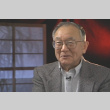
vh
Henry Miyatake Interview II (ddr-densho-1000-54)
Nisei male. Born April 28, 1929, in Seattle, Washington. Incarcerated at Puyallup Assembly Center and Minidoka concentration camp, Idaho. Had some key childhood experiences with discrimination that made him a self-described, "independent thinker," and later, an influential figure in the Japanese American community. While a teenager in camp, he wrote and defended an essay criticizing the …
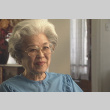
vh
Aiko Herzig Interview (ddr-densho-1002-8)
Nisei female. Born August 5, 1924, in Sacramento, California. Grew up in Sacramento and Los Angeles. During World War II, removed to the Manzanar concentration camp, California, and transferred to the Jerome concentration camp, Arkansas. Washington representative and researcher for National Council for Japanese American Redress (NCJAR) and primary archival researcher for Commission on Wartime Relocation …
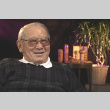
vh
George S. Matsui Interview (ddr-densho-1008-2)
Nisei male. Born March 1, 1915, in Los Angeles, California. Spent prewar childhood in Long Beach, California, but attended grade school and junior high in Japan. Returned to the United States to attend high school. In 1941, was drafted into the U.S. Army and sent to Camp Roberts, San Luis Obispo, California for basic training. Was …
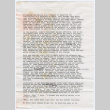
doc
Draft: Eulogy for John DeJong (Page 2) (ddr-densho-468-255)
Second page of typed draft eulogizing John DeJong
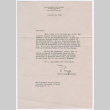
doc
Letter from Ernest Cadman Colwell to William Benton, Assistant Secretary of State (ddr-densho-446-315)
Letter of introduction for Ai Chih Tsai, who has 2 interests: establishing a university in Formosa and making plans for his return to Formosa

Narrator Charles Z. Smith
Born February 23, 1927, in Lakeland, Florida. Left home at age fourteen to live under the educational supervision of Dr. William H. Gray, Jr., attended Florida A & M, and graduated with a degree in business administration from Temple University. Graduated from University of Washington Law School in 1955, then served as law clerk for Supreme …
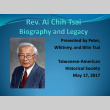
doc
Rev. Ai Chih Tsai Biography and Legacy (ddr-densho-446-352)
Powerpoint for Taiwanese-American Historical Society Exhibit presented on May 17, 2017
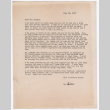
doc
Letter from Ryo Tsai to Albert W. Palmer (ddr-densho-446-281)
Update on Ai Chih Tsai's status and thank you for support
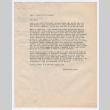
doc
Letter from Joseph Ishikawa to Bill Becker (copy) (ddr-densho-468-209)
Enclosing $5. Update on trip to California, meeting with Hank Baich, and request for assistance with attempts to develop socialist party campaign in Nebraska.
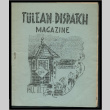
doc
Tulean dispatch magazine section, no. 11 (July 1943) (ddr-csujad-55-1946)
Monthly publication at Tule Lake incarceration camp including stories, poems, commentary and creative writing. Current issue includes an essay, "Does it Pay to Stay Here" by Rev. Shigeo Tanabe, a poem, "Relocation" by Minoru Kimura, "Nisei Personality Adjustment" by James Sakoda, "Gloom" by Buster Sawai, "Outside" by Shuji Kimura, Nisei personality profile on Rev. Shigeo Tanabe, …
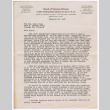
doc
Letter from Gordon K. Chapman to Rev. Sumio Koga (ddr-densho-446-270)
When Ai Chih Tsai was with UNRRA, he was no longer in the US military and was not able to return without a visa. It appears that he needs to secure a job which would lead to a 4-D nonquota visa. What are ACT's abilities to be successful in a pulpit in the US and intentions …

vh
Donald K. Tamaki Interview (ddr-densho-1021-10)
Born in 1951, Donald K. Tamaki spent his formative years in the era of the African American and Asian American civil rights movements. He studied at the Asian American Studies program at University of California, Berkeley, and became a lawyer inspired by the significant social and political changes of the 1970s. In the early 1980s, he …

vh
Keiko Shinmoto Interview (ddr-densho-1021-3)
Keiko Shinmoto's father migrated from Hiroshima to Portland, Oregon, where his brother was an owner of a grocery store. After returning to Hiroshima to see his ailing father, Keiko's father found it impossible to return to America as his mother hid his passport to keep him in Japan. Shortly, Keiko's mother joined him in Hiroshima, also …

vh
Matsuko Hayashi Interview (ddr-densho-1021-4)
Born in 1921 in Parlier in Fresno County, California, Matsuko Hayashi (pseudonym) grew up as the second oldest of the eight children of a first-generation immigrant who had come to the United States as a sixteen years old, and his wife who had come as a "picture bride." They raised grapes on three farms that Matsuko's …
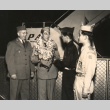
img
Japanese Boy Scout leader with Honolulu Boy Scout leaders (ddr-njpa-4-809)
Caption on reverse: "JAPAN SCOUT LEADER VISITS HERE: Eagle Scout Arthur K. Goto of Honolulu's Explorer Post 82 is shown wishing Count Yorihiro Matsudaira, president of the Boy Scouts Council of Kagawa prefecture, Japan, godspeed as he left aboard a Pan American plane for Tokyo following a two-day visit in Honolulu a week ago last Saturday, …
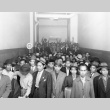
img
Indonesian men at the immigration detention facility in San Francisco waiting to be transported to the immigration detention facility in Crystal City, Texas (ddr-csujad-27-8)
Caption found with the image reads, "After several weeks of action in the U.S. District Court, and an appeal to the Circuit Court of Appeals and to the Supreme Court, an order was obtained for removal of the Indonesians from the immigration detention quarters, San Francisco, to the immigration Detention Facility at Crystal City, Texas. Here …
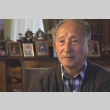
vh
Harry Ueno Interview (ddr-densho-1002-7)
Nisei male. Born April 14, 1907, in Pauilo, Hawaii. Lived in Japan from 1915 to 1923, and settled on the mainland upon his return to the United States. Was married in 1930, and was removed along with family to Manzanar concentration camp, California, during World War II. While in Manzanar, organized the Mess Hall Workers Union. …
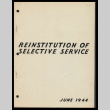
doc
Reinstitution of selective service (ddr-csujad-55-758)
Booklet titled: Reinstitution of selective service: summary of the policies of the selective service system, War Department, and W. R. A. which affect Nisei. Contents include: Americanism is a matter of the mind and heart; Statement of principles; Selective service training and service act of 1940 as amended; Selective service policy; Induction of United States citizens …
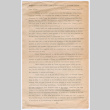
doc
Press Releases for Nebraskans for Norman Thomas (ddr-densho-468-222)
Five press releases notifying media of upcoming convention of Nebraskans for Norman Thomas and attempts to form new political party in Nebraska. Various dates, August 1948
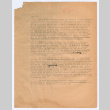
doc
Letter from Joseph Ishikawa to Bill (ddr-densho-468-210)
Draft of letter explaining poor turnout at Nebraska Socialist Party convention meeting with updates on fundraising and promising recruits.
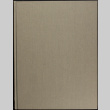
doc
American Concentration Camps VOLUME 6 June, 1942- December, 1942 (ddr-densho-372-6)
Volume 6 divides into six sections. Description about this volume reads directly from the book as follows: Section 1 presents archival documents from June 1942 that show the first major modifications of relocation policies and depict the resistance by Western Defense Command to any amelioration of the condition of the Japanese Americans. Section 2 contains selected …
